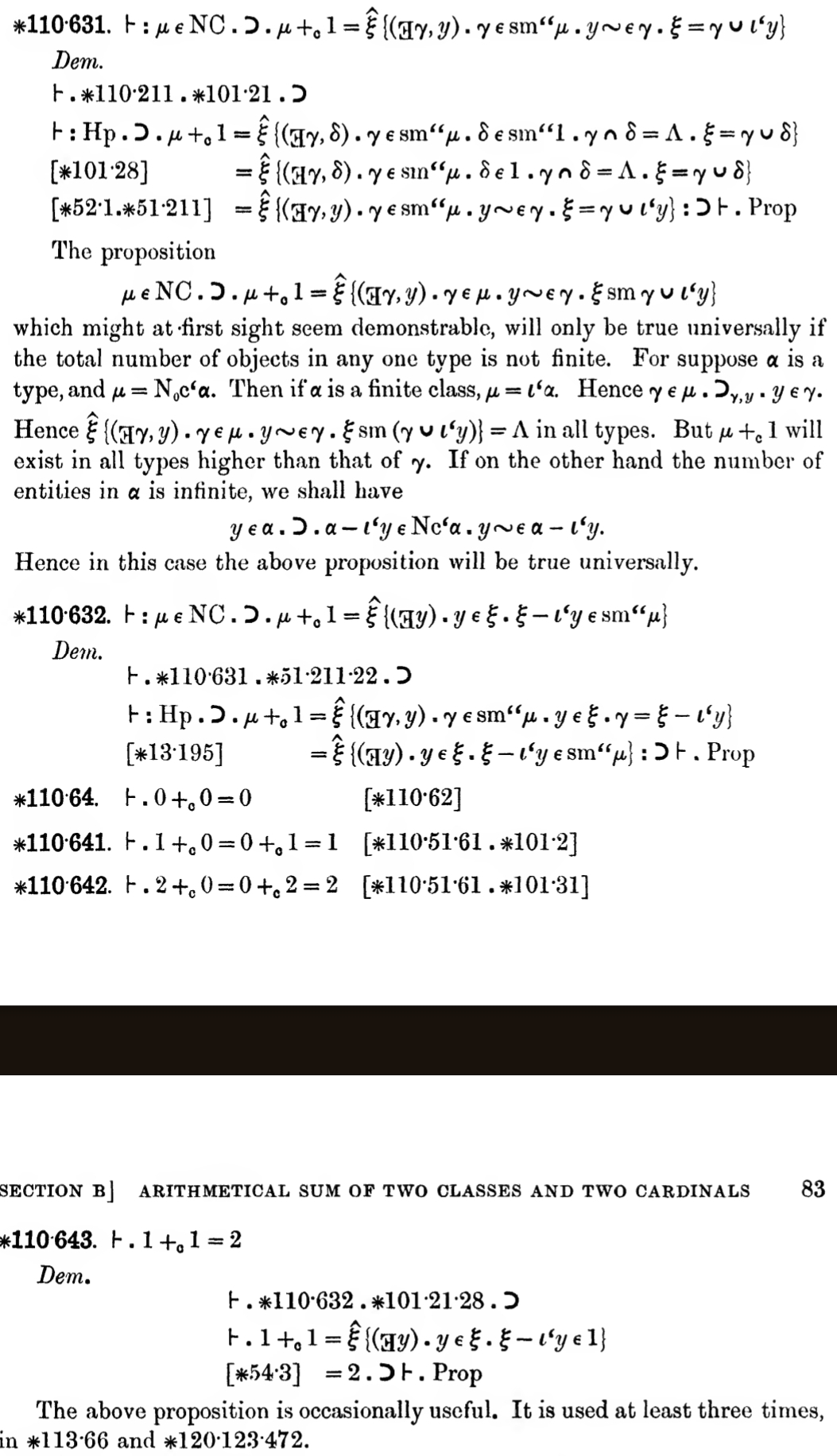Engineer: 2, but 3 to be safe.
The budget is for 1.5, make it work.
Oh, hi Boeing Manager.
Was going to say: 2ish
Wouldn’t they just look up the answer in a table?
Nah not anymore, now you spend a day or so building some convoluted excel calculator once so that you never need to do the calcs again.
Then, 3 years later when you go to add or change something in that calculator, you have absolutely no idea how it works and decide the change wasn’t that important anyway.
1+1=3 in cases of large 1’s
Computer Scientist: 10
O(1)
You forgot accountant
“What do you need it to be?”
We need to report negative earnings so we don’t have to pay taxes obviously
ok, I define 1 as {∅} and 2 as {∅, {∅}}
proving the addition holds is slightly more complicated
Now define “+”

I love the comment that it’s “occasionally useful”
Hmm yes… set theory… I don’t understand anything happening here
There is actually a really good explanation for us math-curious non-mathematicians here:
https://blog.plover.com/math/PM.htmlThat’s some good read, thank you so much.
I really recommend the YouTube channel “Another Roof”. His first few videos were building up exactly this idea, as well as building up all the real numbers (possibly complex too if I’m remembering correctly). Sounds like a dry topic but he uses humour really well throughout. https://youtube.com/@anotherroof
Here is a playlist of the topic: https://youtube.com/playlist?list=PLsdeQ7TnWVm_EQG1rmb34ZBYe5ohrkL3t
ooh, that looks interesting!
1 + 1 = 2 * 0.999…
Error, float detected when int expected
I’m surprised the 6 year old knows factorials.
Not only that, it is mathematically correct, at least given the usual definitions of 1, 2, +, and !
You can’t put an expression on the left-hand-side of the assignment operator.
You need more expressive languages.
Terrence Howard : 2 !! Also 1x1=2 !!
Computer Scientist: 0 and a carry bit
Mathematician: S(1)
Math isn’t induction. Its deductive logic.
Appliance salesperson: oven + pan = hamburger
I appreciate the latex-style quotes around the mathematician’s 1
What’s great is the kid is correct even with the factorial
1 + 1 is not equal to a question mark.







